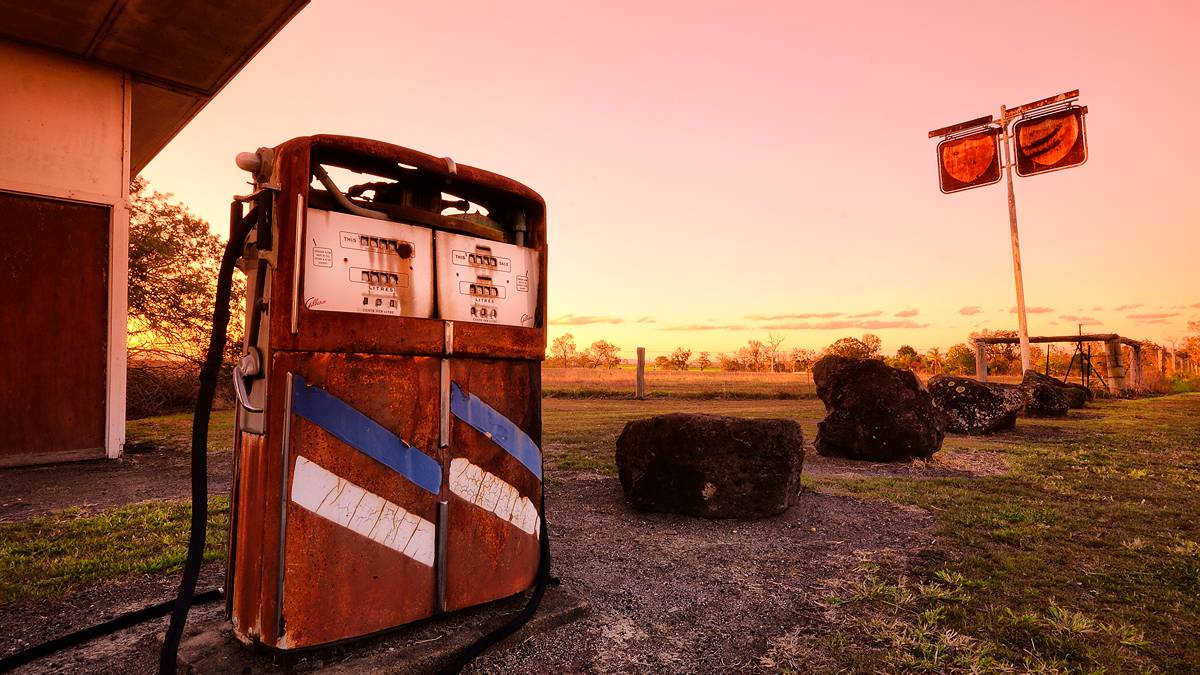Criterion: Convenient or otherwise, changes are coming to a servo near you
While Ampol experiments with fully-automated bowsers, rival Viva Energy is harnessing its OTR outlets in an upmarket push.

Stockhead
Don't miss out on the headlines from Stockhead. Followed categories will be added to My News.
Following a successful pilot, Ampol is taking DIY petrol to another level
Viva Energy leans on its better-performing OTR brand for its expansion plans
An inconvenient truth: illegal tobacco has hurt servo sales
As with shoppers at self-service supermarket checkouts, motorists are long accustomed to helping themselves at the bowser – even if they splash their nice clothes with eau de octane 91 in the process.
Motoring outside of Hobart recently, your columnist was shocked to encounter a human attendant on the tarmac.
Granted, he didn’t don a 1950s style cap and bow tie or offer to ‘fill ‘er up with super’ and check the air and water.
A nice retro touch, nonetheless.
To the dismay of nostalgists, Ampol (ASX:ALD) is taking ‘service’ out of servos altogether.
In a pilot, Ampol has converted 19 existing unstaffed fuel-only outlets under the U-Go banner – and a wider rollout beckons.
Servo without a smile
Ampol reported that after at least four months of operation, U-Go pilot fuel volumes rose 50%, with an average per-site annual earnings improvement of $300,000 (the same as the conversion cost).
Ampol plans to convert 60 sites by the end of 2026, plus around 40 in New Zealand.
The company expects this to generate $30 million of extra earnings before interest tax, depreciation and amortisation (ebitda) by the end of 2030.
Put in context, Ampol made $928 million of ebitda from its convenience sites in calendar 2024.
In effect, Ampol has abandoned using the bowser as a loss leader at its sites that weren’t much chop anyway.
“This retail fuel model is not prevalent in Australia, so it provides a lower cost way for Ampol to compete with lower price fuel offers from other independents,’’ says RBC Capital Markets.
Fill her up (with coffee and Kit-Kats)
Ampol’s initiative flies in the face of treating fuel as merely an entrée into the riches of roadside convenience: ciggies, choccie bars and – of course – coffee.
Fuel margins are always wafer thin and margins haven’t been helped by a demand downturn caused by the cost of living.
Inside the store, the illegal tobacco trade has severely crimped sales.
The country’s biggest convenience fuel retailer, Ampol (formerly Caltex) has around 1800 outlets, 890 company owned.
Ampol reported a 5% decline in first (March) quarter retail fuel volumes, to 867 million litres.
But the company also managed unquantified ‘mid-single digit’ earnings growth, the result of its “premium network and market positioning underpinned by improved fuel margins.”
Dodgy tobacco stubs out sales
Over at rival Viva Energy (ASX:VEA), convenience sales fell 7% to $428 million in the quarter, but excluding tobacco edged up half a per cent.
Viva has about 1000 outlets, mainly former Coles Express stores which are being rebranded as Reddy Express.
Viva highlights overall sector figures showing sales retreated 15% in 2024.
But excluding tobacco, turnover rose 0.5%.
Viva notes a potential tobacco recovery as “a result of stricter penalties and enforcement” of the illicit trade.
Don’t hold your breath.
Viva takes the premium route
In contrast to Ampol’s robo-servo strategy, Viva is taking its convenience offering upmarket via its SA-based OTR chain, acquired last year for $1.15 billion.
OTR stores are known for their impressive fit out and product range.
We’re not just making this up: Viva says OTR accounts for 25% of its shop sales, with each established outlet generating a $600,000 margin compared with $200,000 for its Reddy Express outlets.
OTR is also about spending money to make money: the average wages bill per OTR outlet is $600,000 – three times that of a Reddy Express store.
OTR currently has 180 stores and Viva plans to expand this reach by 40 to 60 outlets per year.
The OTR purchase also means that 25% of Viva’s non-fuel convenience sales are in SA, one of the country’s less – er, robust economies.
Viva’s OTR rollout will be biased to NSW, where Viva is underrepresented.
Refining strategies to suit the times
Meanwhile, both companies are eking out efficiencies from their barely viable refineries: Ampol’s Lytton plant in Brisbane and Viva’s Shell refinery in Geelong.
The lower Australian dollar provides relief, as US-denominated refiner earnings are converted into the local currency.
As for the stores, Ampol says “lower fuel prices are expected to be a modest tailwind for retail fuel volumes and should temporarily benefit fuel margins.”
Viva and Ampol shares have declined 50% and 27% respectively over the last year but have done better over the last month.
Arguably, the sell off is a case of a ‘tank half full’ opportunity for investors - with or without the two-for-the-price-of-one Cherry Ripes lurking at every counter.
Originally published as Criterion: Convenient or otherwise, changes are coming to a servo near you






